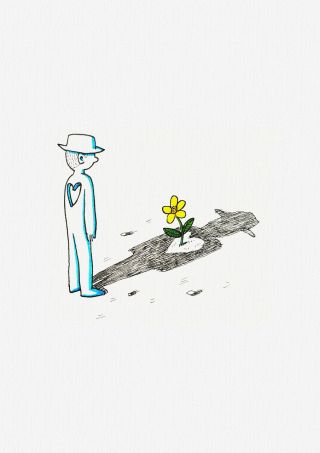Unlock Inner Peace: Your Complete Roadmap to Befriending Your Mind
Meditation
In our increasingly demanding world, the ability to navigate our internal landscape with grace and intention is paramount for well-being. Extensive research, including a landmark 2020 study by Cortland Dahl and colleagues at UW-Madison’s Center for Healthy Minds, highlights our capacity to actively cultivate flourishing. They introduced a multi-disciplinary framework emphasizing four psychological pathways: awareness, connection, insight, and purpose. These dimensions, they argue, are highly plastic and can be developed through various mental training methods, offering a roadmap to befriending your mind and enhancing emotional resilience.
Dr. Cortland Dahl, a renowned expert in meditation science and a Buddhist scholar, further explores this concept in his latest work. He posits that meditation serves as a powerful form of mind training, enabling us to forge a deeper, more intimate relationship with our inner selves. This intimacy, akin to the tender regard Tara Brach describes as "the most basic form of love," fosters a kinder internal dialogue. Just as fertile earth thrives under the sun, a nurtured mind becomes a robust foundation for profound personal flourishing.
Here, we delve into Dr. Dahl's insights on how exploring the mind through consistent meditation practices can profoundly nurture well-being, offering a practical roadmap to befriending your mind.
What are Common Pitfalls in Relating to Our Emotions?
According to Dr. Dahl, we typically engage with our inner experiences in two habitual, often unhelpful, ways. The first is identifying with our thoughts and emotions. For example, when faced with a critical email at work, we might instantly feel overwhelmed and react defensively. In such moments, our emotional response, like anger or anxiety, becomes our unwitting boss, dictating our actions without conscious choice. We get swept away, losing perspective.
Alternatively, the second common pitfall is pushing away negative experiences. We might be aware of our anger or discomfort, but our immediate inclination is aversion. This often manifests as a desire for the feeling to simply disappear, leading us to distract ourselves through various means, like excessive scrolling or overworking. Both identifying with or actively resisting our inner states can ultimately contribute to significant suffering and hinder personal growth.
How Does Meditation Create an Inner Workspace for Choice?
Meditation fundamentally shifts our relationship with internal experiences. Instead of controlling, banishing, or being consumed by reactions, "we learn to open to experience," explains Dr. Dahl. This profound openness creates a vital "inner workspace." Within this space, we gain the invaluable freedom to choose our responses, rather than being trapped in habitual emotional patterns. This mental flexibility is a cornerstone of emotional intelligence, a skill increasingly valued in modern life (Harvard, 2024).
Dr. Dahl suggests three powerful approaches, rooted in Buddhist tradition, for skillfully navigating challenging emotions within this inner workspace:
- Apply an Antidote: Actively introduce a positive emotion to counteract the negative one. For instance, if anger arises from a frustrating interaction, cultivate a feeling of kindness or empathy towards the other person. This short-circuits the negative emotional impact.
- Transform Through Compassion: Use your own suffering as a bridge to connect with others. If your anger stems from someone else's behavior, consider their potential struggles or imagine countless others experiencing similar anger. Wish them, and yourself, freedom from suffering. This transforms personal pain into universal compassion.
- Deep Inner Exploration: Investigate the very nature of the emotion without judgment or the need to change it. Observe anger as simply thoughts and physical sensations. As Dr. Dahl notes, "When we realize that this strongly charged wave of emotion is just thoughts in our mind and sensations in our body, and it doesn’t even mean anything, we are, in a way, freed of the experience." This profound insight leads to "anger without the anger," liberating you from its grip.

What is the Key Ingredient for Befriending Inner Experiences?
The initial step on the roadmap to befriending your mind involves simply being present with your inner experience, embodying the sentiment: "I can be here with this now." This moves from mere noticing and acknowledging to a deeper state of allowing. Allowing means bearing witness to the unfolding experience without resistance or struggle. "There’s grace to allowing for anything to just be here," Dr. Dahl emphasizes. As you tolerate and get to know the experience, it becomes less threatening, often transforming from something you once hated into a profound teacher and friend. This shift from resistance to acceptance is crucial for psychological healing (Stanford researchers, 2023).
The secret ingredient that facilitates this leap from noticing to allowing, and ultimately to befriending, is the inner attitude cultivated during meditation. Specifically, Dr. Dahl highlights the qualities of curiosity and kindness. Many new meditators mistakenly approach the practice with an "improvement mentality," hoping to fix perceived shortcomings. However, meditation offers a radically different paradigm: "It’s less about improvement, more about acceptance," Dahl clarifies. This warm-heartedness is the core requisite for any genuine exploration of the mind, fostering a safe internal environment for growth.

What Are the Profound Benefits of Cultivating Mind Intimacy?
Contemplative traditions universally suggest that the human mind holds vast, untapped potential. "Meditation allows us to access that sense that there’s much more possible for us by connecting us to the full range of our inner experience," explains Dr. Dahl. By becoming more present in our lives, we cultivate a deeper sense of being at home in the world, fostering a warmer, more compassionate relationship with ourselves, others, and our environment. This profound shift brings about a wealth of benefits, including enhanced understanding, a clearer perception of our interconnectedness, and a realization that we are not isolated in our suffering.
Furthermore, this openness ushers in a deeper intimacy with everyone and everything around us. "Living out of the entire spectrum of experience, rather than just from the narratives in our heads, offers a new perspective," Dr. Dahl states. "It’s like we’ve been living in black-and-white and then suddenly, we get the full-color version of reality." This expanded awareness fosters greater awe, wonder, and curiosity, enriching daily life.
How Can We Approach Meditation with a 'Being' Mindset?
Despite its growing popularity, meditation is still surrounded by common misconceptions. One significant misunderstanding, which Dr. Dahl aims to dispel, is the "achievement mentality" often brought to the practice. Many believe they must do something specific – sit perfectly still, concentrate intensely, or completely empty their minds – to reap its rewards. This striving can ironically hinder the very benefits sought.
Instead, meditation, as Dahl explains, is about connecting with "the parts of ourselves that are not broken and that don’t need to be fixed." This connection isn't achieved through forceful doing but through mindful being. The real practice, he observes, often unfolds in the moments when we release all effort and simply allow ourselves to exist. This gentle approach is key to truly internalizing the roadmap to befriending your mind and discovering its inherent wisdom.
References
Dahl, C. J., Wilson-Mendenhall, C. D., & Davidson, R. J. (2020). The plasticity of well-being: A training-based framework for the cultivation of human flourishing. Proceedings of the National Academy of Sciences, 117(51), 32197–32206.







